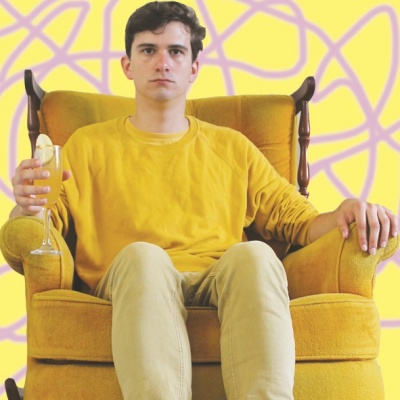JACOB’S PARTY
Fringe Bar, 26-32 Allen St, Te Aro, Wellington
10/02/2017 - 12/02/2017
NZ Fringe Festival 2017 [reviewing supported by WCC]
Production Details
Hello,
I’m having another one-man-social-anxiety-dance-party and you are all invited. It will be filled with nostalgia and regret, like your favourite noughties music videos, and parties you mum tentatively let you go to with a four-pack of RTDs.
There will also be free food. Please come.
Fringe Bar, 26 Allen St, Te Aro, Wellington 6021
Feb 10-12, 8.30pm
BOOKINGS: fringe.co.nz
TICKETS: $18/14/12
Dramaturge: Hannah Clarke
Producer/designer/operator: Sasha Tilly
Theatre , Solo ,
A mostly entertaining diversion
Review by Cassandra Tse 11th Feb 2017
Jake Brown’s ‘Jacob’ persona is a coil of nervously suppressed energy, a Spongebob Squarepants meets Rebecca Bunch who desperately wants everyone to have fun, but would simply like his party guests to follow a few rules to keep that fun contained, thank you very much.
The show begins with a frenetic dance sequence delivered with such passion and commitment that even if it isn’t very technically proficient, we can’t help but be charmed. Brown and director/co-writer Michael Trigg seem to be aiming for the same aesthetic throughout the entire show, but do not necessarily achieve it.
The show itself is a loosely linked-together survey of the previous parties Jacob has hosted, as re-enacted through anecdotes, era-appropriate dance numbers and party games. Nostalgia for the late 90s through 00s keeps the audience laughing with recognition as each new tune begins, and we are treated to Jacob’s favourite Top 40 hits, from Billie Piper, Nelly Furtado and Britney Spears (“the holy trinity of pop”) through Missy Elliot, Fall Out Boy and The Smiths (an outlier from his “introspective” phase).
The audience, as party guests, play a few rounds of musical statues and (a lucky few) take tequila shots. Between these set pieces, Jacob describes the party failures of his past – from his best friend ditching his eighth birthday and calling him “Gay-cob”, to some girls sneaking a bottle of Midori into his very fancy seventeenth birthday cocktail party.
In all these different segments, there are comedic moments. Jacob’s idiosyncratic dance style provides many laughs, as do his dry, self-deprecating one-liners (“Vomiting feels like you’re dying, but it also feels good, I guess for the same reason”) and a joke where he pulls on Hallensteins shirt after Hallensteins shirt to impersonate the faceless bros surrounding him at a nightclub works well.
Unfortunately, the show does not feel particularly cohesive. A thin thread about self-acceptance and coming to terms with his sexuality is touched upon only at a surface level, and an attempt at an uplifting ending in which Jacob realises that he doesn’t have to try so hard to impress his guests feels unearned.
It’s difficult to critique a show like this for feeling slapdash or unpolished, as clearly this is the aesthetic that Brown and Trigg are attempting to achieve. Jacob’s ‘uncoolness’ – his nervous line delivery, his lack of easy segues between sections, his exaggeratedly shaking hands as he refills his water glass – are all part of the character. And yet, despite being helmed by a character who supposedly cares so much about structure, Jacob’s Party tends to meander. The improvisatory feel of some segments slows down the pace and by the end some of the dance sequences become a little repetitive. The stories Jacob tells about his past party history rarely feel like they have a larger point, or add up to anything beyond a few laughs at his own expense.
Brown is a charismatic performer and the tightly-wound persona he has developed for this piece is a lot of fun but overall, the lack of narrative or emotional build means Jacob’s Party never goes beyond a mostly entertaining diversion. Perhaps that’s all a good party needs to be.
Copyright © in the review belongs to the reviewer





Comments